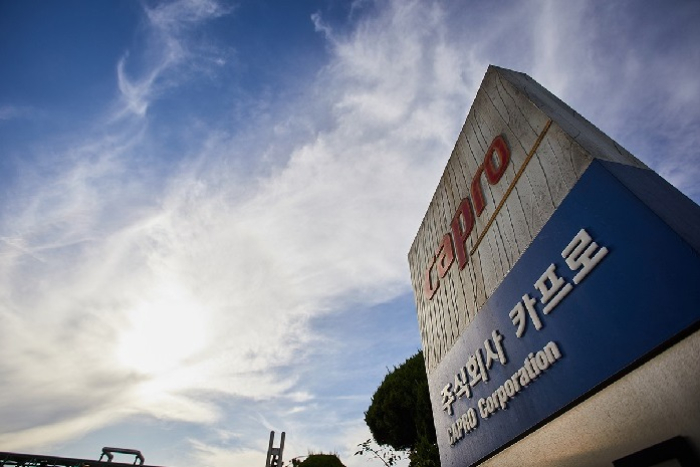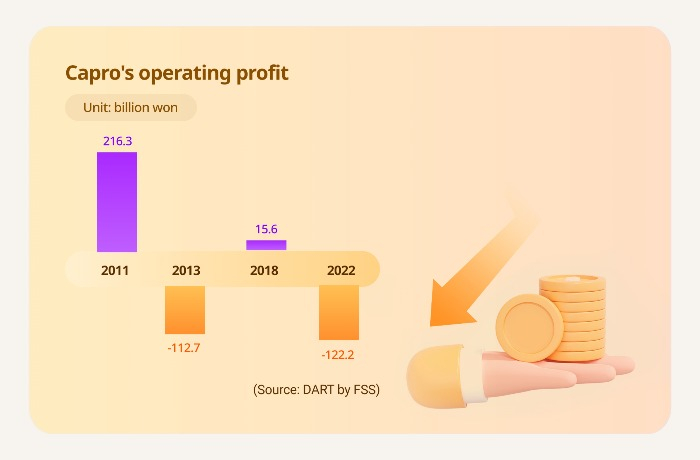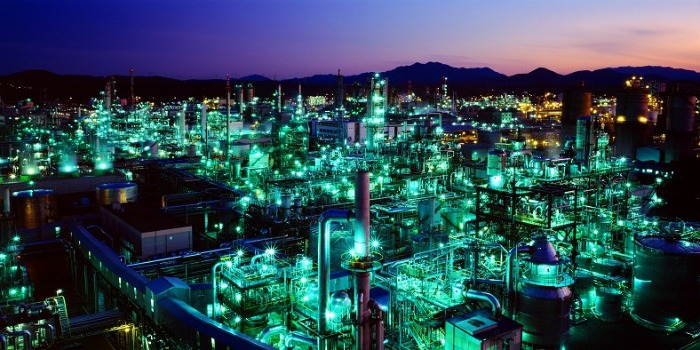With long-gone heyday, Capro clings to stake sale for survival
S.Korea’s sole caprolactam maker’s market capitalization has eroded nearly 100% from its peak about a decade ago
By Aug 04, 2023 (Gmt+09:00)
LG Chem to sell water filter business to Glenwood PE for $692 million


KT&G eyes overseas M&A after rejecting activist fund's offer


Kyobo Life poised to buy Japan’s SBI Group-owned savings bank


StockX in merger talks with Naver’s online reseller Kream


Meritz backs half of ex-manager’s $210 mn hedge fund



Capro has picked local buyout fund Socius as the lead advisor for the sale of its stake in the company, according to sources in the investment banking industry on Thursday.
It will sell new shares to let the new owner take over about half of the company’s shares, sources said.
The company’s attempt to sell off its controlling stake comes as it has been grappling with years of loss-making due to a flood of cheap caprolactam products from China in an absence of a control tower.
During its heyday, Capro enjoyed 216.3 billion won ($166.5 million) in operating profit on sales of 1.2 trillion won in 2011. Its market capitalization stood at 1.5 trillion won at that time.
It was also a time when the company was highly sought after by job seekers for handsome pay and job tenure of over 20 years, underscoring employees’ high job satisfaction at the company.
But the party was over the next year when its Chinese rivals started ramping up their caprolactam production capacity and dumping their products in the Korean market, putting an end to Capro’s monopoly in the local caprolactam market.

Capro logged 24 billion won in operating losses in 2012 and has never regained its earlier glory.
It again suffered a loss of 122.2 billion won in 2022 and decided to discontinue the production of the nylon raw material, its long-time mainstay product, in April this year after it could not repay its debts.
Its market value has plunged to 26.6 billion won.
FELL OUT OF FAVOR
Founded in 1965, Capro had enjoyed its monopoly status in the Korean caprolactam market for a long time. It was set up as a state-run company to help the country reduce its hefty reliance on nylon raw material imports.
When it went public in 1974, Korea’s two long-time textile rivals Hyosung Group and Kolon Group rushed to take a grip on the company through their subsidiaries Hyosung TNC Corp. and Kolon Industries Inc. with 20.0% and 19.2% stakes, respectively.
The two foes often clashed over the management control of Capro. Kolon in 1996 filed a complaint with the prosecution, accusing Hyosung of increasing its stake in Capro to 57.6% by mobilizing borrowed-name accounts of its employees.
In a fierce fight over management control, Capro’s two largest shareholders failed to come up with measures to revive the company under the attack of cheap Chinese nylon raw material products.
With the fast-weakening market competition, their affection for Capro also faded and they finally decided to hand over their control.

Hyosung TNC sold off most of its entire 12.75% stake in the nylon material maker late last year, while Kolon Industries in January changed the purpose of its holding of shares in Capro to simple investment from participation in management, hinting at a disposal of its entire 9.56% stake.
Worse yet, Capro’s unhappy employees revolted, escalating the management and labor union dispute, which hurt the company’s restructuring efforts.
INVESTORS CHEER SALE NEWS
Backed into a corner, Korea’s sole caprolactam maker has decided to sell its majority stake to a new owner who is willing to take the lead to resuscitate the company.
After abandoning the nylon raw material business, Carpo is seeking to transform into a green energy company focusing on blue and green hydrogen, using its existing hydrogen, sulfate and ammonia refining facilities, which have been used to produce caprolactam for about five decades.
Unlike its management or employees, investors cheered the news of the sale.
Capro shares zoomed by a daily limit of 30% to close at 864 won apiece on Friday.
Write to Jun-Ho Cha at chacha@hankyung.com
Sookyung Seo edited this article.
-
 Chemical IndustryKolon Industries to increase aramid pulp production for EVs
Chemical IndustryKolon Industries to increase aramid pulp production for EVsMay 10, 2023 (Gmt+09:00)
1 Min read -
 PetrochemicalsKolon, Hyosung to give up control over nylon material maker Capro
PetrochemicalsKolon, Hyosung to give up control over nylon material maker CaproJan 17, 2023 (Gmt+09:00)
2 Min read -
 Beauty & CosmeticsHyosung TNC: Shifting from yarn maker to eco-fashion trendsetter
Beauty & CosmeticsHyosung TNC: Shifting from yarn maker to eco-fashion trendsetterFeb 09, 2021 (Gmt+09:00)
2 Min read


